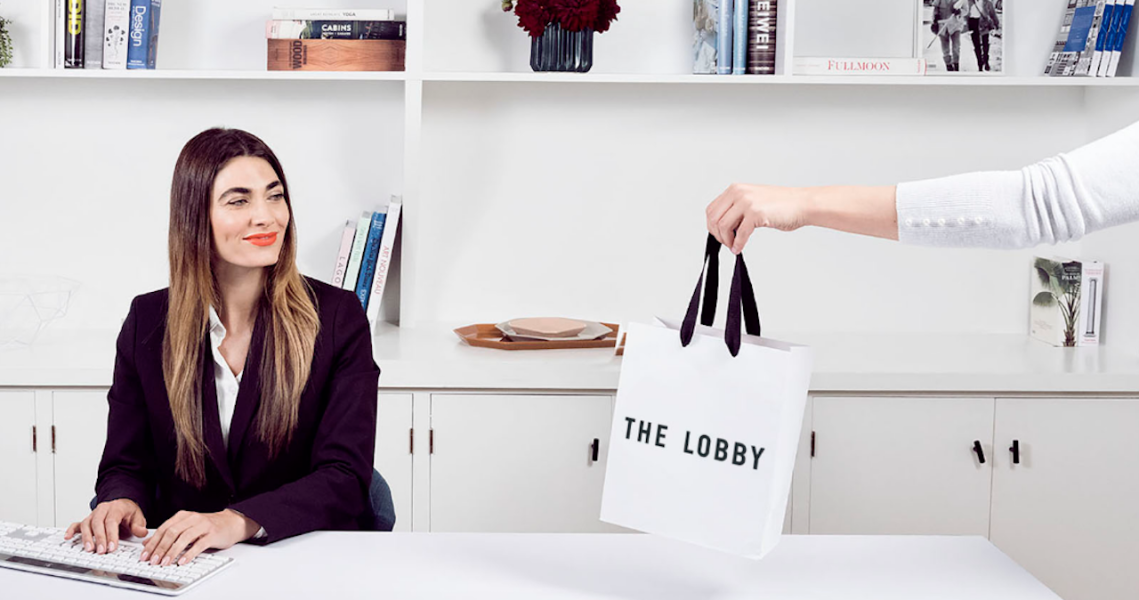The rise of personal shopping services is tied closely to the changing ways customers think about their relationship with shopping. The Lobby, a new startup aiming to set itself apart from comparable services like Stitch Fix, is the latest company to get in on this trend.
With The Lobby, founder Abigail Holtz has two distinct ideas of how she sets her company apart: a focus on the workplace as the main venue for personal shopping, and a dedication to giving customers access to the many up-and-coming digitally native brands that often have strong online presences with little or no offline options. In comparison, Stitch Fix features brands like John Varvatos, Sperry and Kate Spade that already have a large wholesale presence.
“We focus on those direct-to-consumer brands,” Holtz said. “They’re the ones consumers are most excited about, but they’re also the hardest for those consumers to access. A lot of these brands don’t have stores.”
Brands like Greats and Margaux have large followings on Instagram, riding the kind of hype for DTC fashion brands promoted by social media influencers that has propelled Fashion Nova to lofty heights. But, according to Holtz, they struggle to get customers to actually try things out without having seen the products in person. Holtz attributes this to the hesitance many customers still have, even as commerce is rapidly digitizing, with buying things they have never gotten the chance to interact with up close before.
“We’ve found that people love the stuff we recommend to them, but there were brands they had never heard of before,” Holtz said. “They had anxiety about fit, quality, return policy. People have all these anxieties about trying new brands. We can let people try stuff on first and see if they like it.”
The Lobby launched on Monday in California with a stable of DTC women’s brands like Aella, Jennybird, Cuyana, Michi and Graf Lantz. The most recently available figure put the company’s subscriber count at around 1,000 members. The Lobby will be expanding into menswear early next year, relying on word-of-mouth and social media marketing to spread awareness.
The other wrinkle in how The Lobby separates itself from competitors is through a focus on the workplace. Holtz said she was inspired by seeing how frequently colleagues would get packages delivered to their office and try things on in the bathroom to show them to their coworkers. In the spirit of trying to cater to the shopping habits of the average working woman – The Lobby’s core demographic – The Lobby delivers exclusively to office buildings and businesses. The Lobby does not deliver to homes at all, which reads counterintuitive to its convenience-minded ethos.
Ad position: web_incontent_pos1
In addition to meeting customers where they are, Holtz admits that this serves a secondary purpose of generating word-of-mouth buzz for the service. If one person is getting a curated box of clothes shipped to the office, others might want to try it out as well.
Ultimately, these types of services come down to a single strategy: the appeal to convenience. Customers move faster, shop quicker and have shorter attention spans, according to Holtz. Companies like Stitch Fix, Rent the Runway and, now, The Lobby all view convenience as the major motivating factor for how people buy clothes today.
“Sometimes [our customer] is too busy, so it’s about speeding up the process,”Rent the Runway chief operating officer Maureen Sullivan told Glossy last month. “Sometimes, she wants a styling element or needs help — it’s all about, ‘What are the use-cases?’”




